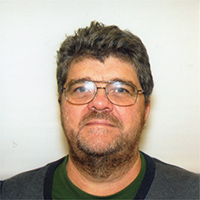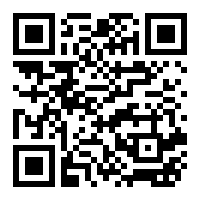编辑访谈 - R. B.
-
 R. B.
R. B. Education: Doctoral, Physics
Education: Doctoral, Physics Introduction: I have professional experience covering all aspects of physics, computational mathematics, computer science, statistics, mechanical and electrical engineering, spectroscopy, technical product development, food and agricultural science. I have edited papers largely within those areas, of course, but also overlapped into business and financial works, as well as novels (science fiction) and medical research.
Introduction: I have professional experience covering all aspects of physics, computational mathematics, computer science, statistics, mechanical and electrical engineering, spectroscopy, technical product development, food and agricultural science. I have edited papers largely within those areas, of course, but also overlapped into business and financial works, as well as novels (science fiction) and medical research. -
Q1. Could you tell me your academic background and your work experience in general?
I started my academic career studying quantum mechanics and quantum field theory. Like a lot of students back then, I took a few years off for some overseas experience, and returned to complete my PhD degree. Ironically, I have always had a practical bent, so after my PhD, I took a role with a wool research institute. Perhaps surprisingly, quantum mechanics or at least the mathematical disciplines and processes, were essential in that role, and led to improved measurement processes, helping both farmers and wool spinners. That branched into fundamental spectroscopy measurement, particularly in NIR, and dual energy X-ray systems for wool food, and finally on-farm measures of all sorts of interesting things. All through that career, I have published as widely as possible, and greatly appreciated being able to build new approaches based on amazing work done by previous researchers. It turns out, you can’t make simple, useful, robust tests that are meaningful to the processor or consumer (e.g. meat fat content) without understanding the absolute basic fundamentals of measurement, waveform interactions, and all sorts of really interesting things, not least the psychology of the users, farmers, and companies. So, while you might wonder what use would quantum mechanics be in the “real world”, without that understanding, I could never have created X-ray based or NIR based measurement gear, and the industry would remain stuck with the squeeze and guess method of “measurement”.
Q2. Why did you decide to become an editor?I have moved from an employee to an entrepreneur, developing a new concept in spectroscopic based measurement. Something almost as simple as shining a torch on whatever you want to measure, wherever you are. But this is a long road, don’t ever think that just because it’s a great concept “if you build it they will come”. The device and application pulls together all sorts of science, physics, computing, search systems, etc., Hence, I needed a way to stay current in a wide range of fields, as well as a way to earn without tying me to a location, or a regular timetable I have always thought that publishing is a critical part of research. Regardless of the regulatory aspects, if you don’t get your findings, developments, etc. it out there, then “science” starts to become rather selfish. Of course, I have also helped many colleagues and students to finalize papers, theses, etc. So, considering all that, I thought editing research papers for publication would be a good use of my skills, and give something back for all those many researchers before me, whose outcomes formed the base for my own, and everyone’s new frontiers. I have never regretted it that decision. Sometimes it takes a little more of my time than expected, but the rewards are very tangible. Helping bring some amazing work out of the murky word bath, and putting it up there in journals for all to see; authors re-submitting articles for review after following some hints or guidelines I have suggested, where their clarified explanations have taken the paper into something that really shows the depth of their research, a new direction, correcting a miss-step, opening formally closed doors. Sometimes, I follow the author/title to see it published, and not to take anything from the authors (they did the hard work!) but I feel a little proud too, to see it in print, and being referenced: making a difference for their field.
Q3. You have edited many papers written by non-native English speakers. What kind of errors you have found the most?Of course all sorts of technical things: sentence construction and so forth. But really the biggest thing I see is that although the authors KNOW what they mean, they forget that while some point or other might be blindingly obvious to themselves, hardly even worth mentioning, without slowing down a little and clarifying it properly, whole sections of their work (as expressed in the paper) are incomprehensible. That’s not just an issue with getting the English correct, so much as being clear about what they did, and perhaps why they thought to do this, so their colleagues in their field can quickly recognise the contribution this paper makes, and maybe push the boundary just that little bit further out.
Q4. Could you please provide any advice on writing papers for non-native English speakers?It always comes back to producing something that your colleagues can easily understand. It’s not easy to balance between getting bogged down in fine detail vs glossing over essential points. I cannot imagine how frustrating it must be to attempt this through the inevitable fog of using another language you are not totally fluent with. So don’t worry too much if the paper is not perfect. That’s the editors job: take the English wording and make it flow, ensure your thoughts and structures are clear. As authors, you need to get the details down, the structure in place. Write it as best you can, then tidy it, but then let a native English speaker/researcher editor put the final polish on the work. Think of it this way: as an editor, I can’t take that block of granite and, to paraphrase Michael Angelo, cut away all the bits that don’t look like a lion.But you can. You know there’s a lion, or tree, or landscape in that paper, and you’ve already crafted it in different media (your native language). So carve it out of the (English) block, don’t be too concerned if it’s not quite as polished or clear as you want it to be. Make sure all the critical parts are at least roughed out, and how they link together. Then pass it to someone who is experienced with this different media (English). I can’t see the lion or tree in the raw block, but if you can show me where it is, I can take that unpolished carving, trim a little, smooth this, reposition things, add some lines, slightly re-shape that, and bring that underlying structure you are trying to express out for all to see and appreciate.
Q5. Could you please share your publication tips?The biggest disservice authors do is to try to produce the final version at the start. Detailed formatting, figure positioning, adding tiny spaces to put the figure just “there”, etc. All of that diverts your (the author’s) attention from the most important aspects: what did you do, and why is it important. Any competent editor can take a document, and format it however fits your target journal, but we cannot fix the missing details, or meaningless equations, figures, and tables, because you changed symbols, or added something, or left something out. Keep your formatting really simple; don’t bother to put the figure in the “right” place; don’t be at all concerned the caption got shoved onto another page, or the table layout needs ‘fixing’. Avoid setting it double-column, that just adds the whole “format” nightmare at a time when you need to concentrate on content. It is very simple to convert it to double-column or place the figure/table in the right place, once all the words are right. Please, don’t be concerned about how long it is. ADD phrases, give two explanations, treat the editor as you should: a word craftsman, who can make a better product for you if you let us know what you want. Many of us are competent in your field, maybe not your speciality, but enough to understand the basics of what you are trying to explain. If you give us the tools (phrases, details, etc.) we can make that sentence clear, easily understood; we can suggest alternatives to the figure/table, so the other specialists who read this paper will immediately and unambiguously understand what you have accomplished, and maybe how that could help their own research developments. If you feel the paper is getting too long, don’t go in and cut bits out. Leave it, just ask the editor to shorten/rework. That’s what we do, take advantage of the expertise at your disposal.
Q6. Why is it important to receive Wordvice’s professional English editing service?I recall, back as an undergraduate, a small book called “Scientists must write”. The premise was that if you don’t tell people what you have done, what was the point; and the corollary was that if you are going to write, then write it so your message gets across clearly. Many Wordvice authors publishing in English based journals, or applying for English based research or other roles, do not have English as anything like their first language. My hat is off to all those authors who have undertaken to write a science paper in another language: a frighteningly daunting task! But if you are going to do, then do it well. You need to be sure the editor who works with you on your paper is competent, and at least generally knowledgeable about your field. But you don’t need that extra problem of choosing which person to edit your paper, you just need to be assured that the right person will be assigned the task. That’s where Wordvice can really help you. With a range of editorial expertise available, they make sure your paper goes to a competent editor, with core knowledge of your field, and excellent word skills. This gives you the best chance of producing a paper that succeeds at that peer review, or the academic board, or all the other important checks that journals, funders, academic institutes and so forth put your document through.














